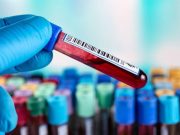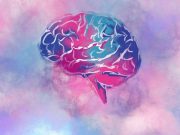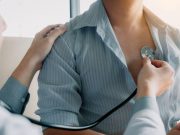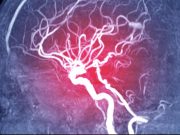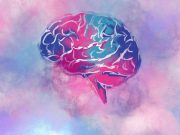Tag: Heart / Stroke-Related: Stroke
Genetic Predisposition to Smoking Causally Linked to Stroke Outcomes
Link remained significant in multivariable Mendelian randomization analyses adjusting for genetically predicted alcohol consumption
Flu Vaccine Offers Moderate Protection From Stroke
After full adjustment, association between influenza vaccination and ischemic stroke yielded adjusted odds ratio of 0.88
ABO Variants Linked to Risk for Early-Onset Ischemic Stroke
Variants tagging blood groups O1, A1 more strongly linked to early- versus late-onset stroke; genetic risk for VTE also linked to EOS
Seizures in Young Stroke Survivors Double Dementia Risk
Findings seen for all strokes, ischemic strokes, and hemorrhagic strokes
Endometriosis Linked to Greater Risk for Stroke
Of the total association of endometriosis with stroke risk, largest proportions attributed to hysterectomy/oophorectomy, hormone therapy
Lifetime Risk for Stroke Varies With Genetic Risk, Cardiovascular Health
Highest LTRS score of 24.8 percent seen for those with high genetic risk and inadequate Life's Simple 7
Genotype Tied to Endovascular Therapy Outcomes in LVO Stroke
Instant, early reocclusion more frequent in carriers of the RNF213 p.R4810K variant, found mainly in people of East Asian descent
Depressive Symptoms Often Seen in Patients Years Before Their Stroke
Individuals with stroke have increase in depressive symptoms compared with matched controls at the assessment before stroke
Perioperative Stroke Examined in Children Receiving Heart Transplants
Poststroke mortality rates similar for Black and White children during first six months, but higher for Black children after six months
Genetic Analyses Link Vitamin D Deficiency to Dementia Risk
In Mendelian randomization analyses, 25(OH)D associated with risk for dementia, but not stroke or neuroimaging outcomes




